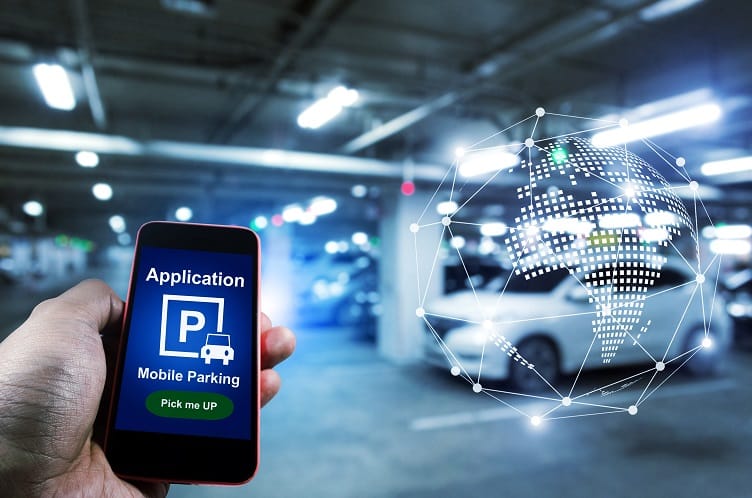
As urban centers grow, so does the demand for efficient and sustainable infrastructure solutions. One area ripe for innovation is urban parking, a challenge that, if addressed, can lead to significant reductions in carbon emissions. By leveraging the capabilities of Artificial Intelligence (AI) and blockchain technology, smart parking systems are paving the way for cleaner, more efficient cities.
The Role of AI in Smart Parking
AI plays a crucial role in transforming traditional parking systems into intelligent, adaptive networks. Through machine learning algorithms and data analytics, AI optimizes parking space management by predicting parking availability and directing drivers to the nearest available spots. This reduces the time and fuel wasted in searching for parking, subsequently decreasing traffic congestion and lowering carbon footprints.
Parking management systems empowered by AI can also dynamically adjust pricing based on demand, encouraging efficient use of available space and optimizing revenue for parking facility operators. By predicting peak times and adjusting accordingly, these systems ensure a smoother flow of vehicles throughout urban centers.
Blockchain: Securing the Future of Parking
Blockchain technology complements AI by offering transparency, security, and efficiency in parking management. Its decentralized nature allows secure transactions between users and parking services, reducing the need for intermediaries and minimizing the risk of fraudulent activities. Smart contracts enable automated billing and payment processes, streamlining user experiences and encouraging more eco-friendly transportation modes.
This integration can also facilitate shared and peer-to-peer parking solutions, where individuals can rent out private parking spaces, thus optimizing space utilization and reducing the need for additional infrastructure.
Case Study: Smart Parking’s Impact
Several cities worldwide are already witnessing the transformative effects of smart parking systems. For instance, Los Angeles has implemented smart sensors that guide drivers to available spots, reducing search times by up to 43%. This initiative alone has led to a consequential reduction in carbon emissions, showcasing the potential environmental benefits on a larger scale. [Source: Los Angeles Department of Transportation]
Additional Benefits and Broader Implications
The convergence of AI and blockchain in smart parking not only impacts environmental and operational efficiencies but also enhances urban planning and integration with other smart city solutions. By creating comprehensive data landscapes, urban planners can better understand traffic patterns and optimize city layouts and public transport systems.
Moreover, these technologies support emergent transportation modes like electric vehicles and ride-sharing services, further promoting sustainable urban mobility.
Conclusion: Towards a Sustainable Urban Future
The combination of AI and blockchain in smart parking is more than just a technological advancement; it’s a significant step towards sustainable urban living. As these systems continue to evolve, they offer promising pathways to not only address parking inefficiencies but also combat carbon emissions effectively.
By adopting these innovative solutions, cities can create more livable, environmentally-friendly environments and lead the charge in global sustainability efforts.
References
- Electronics360, How AI and Blockchain Optimize Smart Parking. Available at https://electronics360.globalspec.com/article/15962/how-ai-and-blockchain-optimize-smart-parking
- Los Angeles Department of Transportation, LA Express Park Program. Available at Los Angeles DOT.
- MIT Technology Review, How Smart Parking Tech Can Drive Urban Mobility, MIT Tech Review Link
- IBM, Blockchain for Transportation, IBM Blockchain Link